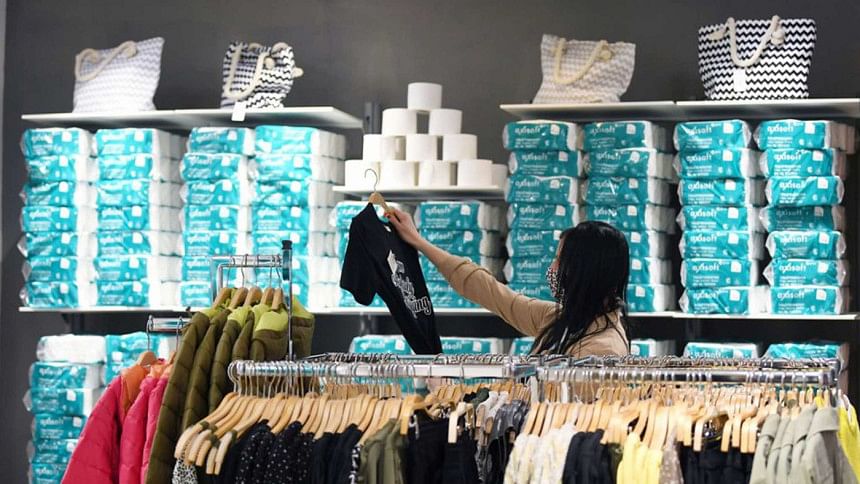We must all share the pain of rising prices

A host of challenges await garment makers as 2022 progresses. The legacy impact of the Covid-19 pandemic, including ongoing logistical challenges around moving stock; the impact of Russia-Ukraine war and the subsequent reduced access to the Russian market for our products; access to raw materials and supply constraints for raw materials, such as cotton—all of these and more will make this year a difficult one, despite the relief many of us feel as the pandemic has somewhat slowed down.
My biggest concern of all, however, is inflation. Price hikes have not really been an issue in fashion and its supply chains for many years. If anything, ours has been a deflationary industry, due mainly to an excess of supply over demand, low barriers to entry into our industry, easy access to raw materials, and many other reasons.
But this picture is now changing. Through much of 2021 and now into 2022, our industry witnessed huge increases in the cost of shipping containers around the world. This is an ongoing problem, and it's only going to get worse. In some cases, the cost has risen from less than USD 2,000 to more than USD 20,000. Industry experts believe the prices could go even higher.
Those desperate to move their goods can, of course, opt for airfreight. But that brings with it extra costs. And, of course, prices for airfreight are also on the rise.
On top of the increased shipping costs, suppliers are also seeing a spike in raw material prices. Cotton is a staple for Bangladeshi garment makers, and cotton prices continue to soar to record highs.
Garment manufacturers had just about become accustomed to rising raw materials and shipping prices. But now there is another issue adding fuel to the inflationary fire: the war in Ukraine. One consequence of this war is rising gas and fuel prices globally. Global analysts seem to have put no ceiling to the rise of fuel and energy prices as a consequence of the war. What is clear, however, is that the longer Russia's invasion of Ukraine lasts, the worse the consequences will be, given the huge strategic importance of this region as an exporter of fuel.
This is a concern for Bangladesh, which is increasingly dependent on imported energy.
Could rising fuel prices hit garment makers? Just recently, I read that fuel and energy shortages in Sri Lanka could impact the performance of the country's apparel export sector this year. On mitigating future disruptions, the country's main textile body said that unless resolved soon, extended power cuts, coupled with shortages of diesel, would have an impact on the industry's performance in 2022.
Sri Lanka's economy is different from ours, and its dynamics are unusual in that it's an island nation. But to see a rival garment hub suffering does bring these issues rather too close to home for comfort.
With all of this in mind, I believe RMG producers in Bangladesh need to begin putting mitigation measures in place and planning for a prolonged period of price inflation—if they are not doing so already.
There are several ways to protect one's business against inflation. One of the most obvious is via the use of forward contracts. A forward contract is a contract between two parties to buy or sell an asset at a specified price on a future date. It can be used for hedging against future inflation and can help give a business more certainty.
A currency forward is a binding contract in the foreign exchange market that locks in the exchange rate for the purchase or sale of a currency on a future date. These are vital for many businesses right now, given the huge fluctuations we are seeing in the prices of the dollar and other major currencies.
There are also less formal techniques that businesses can adopt to protect themselves against ongoing price rises. On a broad level, the clearest advice I would offer is for RMG factory owners to be upfront with buyers about the increase in costs they are facing. A manufacturer trying to internalise the inflationary pressures we are witnessing will not remain in business for long.
There is nothing wrong with passing some costs along in an effort to maintain a reasonable margin. Much of this comes down to negotiation skills, an area we sorely need to improve upon in Bangladesh. It is widely accepted that as garment makers, we are price takers. But there has to be some limits to this. In other words, if our costs have risen significantly, at some stage we have to increase our prices or our margins will be completely eroded.
The one final point in all this is that, just maybe, this year will see some significant increases in the end prices of clothing. I read a lot about retail prices rising in the West. At the same time, I am astonished when looking at the websites of some major fast fashion brands and seeing how cheap their clothing remains. At times, it feels like end consumers are completely buffered from the inflationary impacts. Surely, this has to change at some point. We must all share the pain of global economic shocks.
Mostafiz Uddin is the managing director of Denim Expert Limited. He is also the founder and CEO of Bangladesh Denim Expo and Bangladesh Apparel Exchange (BAE).

 For all latest news, follow The Daily Star's Google News channel.
For all latest news, follow The Daily Star's Google News channel. 



Comments